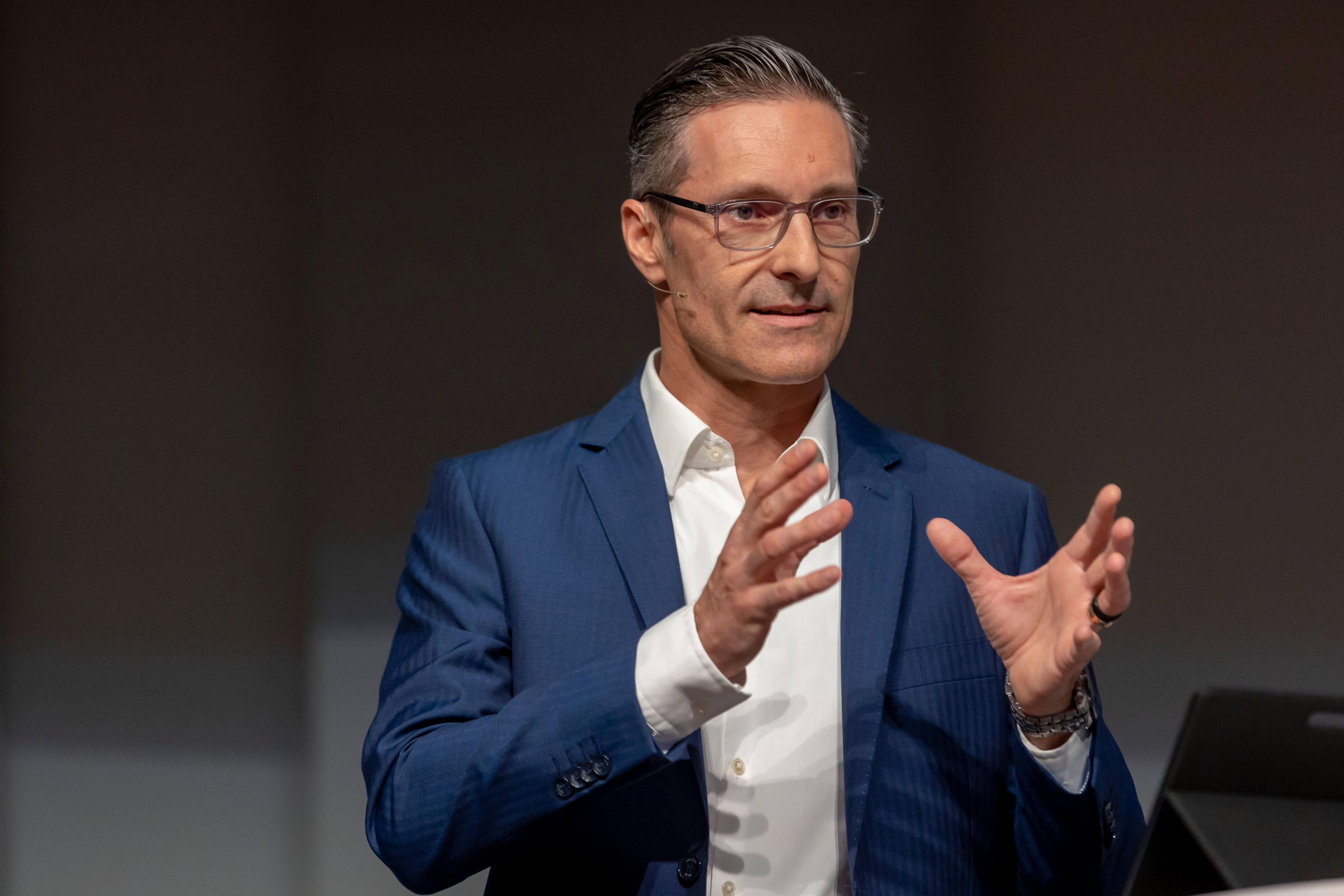Prof. Dr. André Casal Kulzer
We Need More Diversity and Holistic Life Cycle Analyses
Drive Expert Calls for a Aifferentiated Analysis of the Various Technology Options
How can the mobility sector be defossilized as quickly and efficiently as possible? When discussing this question, Prof. Dr. André Casal Kulzer, Director of the Institute of Automotive Engineering Stuttgart (IFS), University of Stuttgart, would like to see more openness: “Without diversity, there is no sustainable future for our automotive industry – we need diversity in terms of renewable energy sources, raw materials and, in particular, with regard to drive technologies.” Prof. Dr. Kulzer will talk about his ideas for a diverse mobile future in a keynote speech at the 12th International Engine Congress.
After more than 20 years of professional experience in the automotive industry, both with a major supplier (Bosch) and an OEM (Porsche), Prof. Dr. Kulzer joined the university three years ago. “On the one hand, I want to inspire young professionals for drive technologies, and on the other hand, I want to support the industry with powertrain solutions for sustainable mobility from a scientific perspective. Topics such as the circular economy and life cycle analyses deserve much more attention than they are currently receiving, especially in legislation.”
Diversity of Drive Concepts and the Role of E-fuels
His core thesis is that the future is electrified – and will be supplemented by energy sources that are based on electricity or hydrogen, be it directly used hydrogen or fuels synthesized from it. “I always talk to my students about molecular energy sources. For me, this includes all forms of chemically bound energy, whether e-fuels in the form of hydrogen, methane, methanol, standard-compatible fuels, etc.”
However, relying solely on battery electric vehicles is not enough. “A wide variation of technologies is necessary, with different degrees of electrification depending on the application. In order to defossilize quickly, we should use electrification and hybridization in all forms. Just as a fuel cell vehicle is electrified, I believe that e-fuels for combustion engines are also part of a forward-looking mobility mix.”
The facts speak for themselves, according to Prof. Dr. Kulzer: “We can't simply flip the switch to 100% battery electric drives – despite the appeal of their efficiency, even if we wanted to.” According to him, a key challenge lies in being able to effectively store the surplus of renewable energy expected in the future, for example through the electrolysis of hydrogen or e-fuels. E-fuels will thus make an important contribution to defossilization – “whether in Germany and Europe, too, depends on politics.” While countries such as China, Brazil, the Gulf States and India are already massively expanding their e-fuels production or securing imports in the long term, there is currently still a lack of a clear European position. “If we don't develop or import e-fuels as a potentially CO2-neutral energy source and make them usable through stable legal requirements, others will.” Ultimately, suitable global solutions are needed anyway, in which social aspects, such as access to mobility, must be taken into account in addition to climate and environmental protection.
Analyzing the Entire Life Cycle
In terms of drive technologies, Prof. Dr. Kulzer advocates sustainability analyses that cover the entire life cycle – and not just looking at whether a car has an exhaust pipe or not. “Even a BEV is not zero grams of CO2 per se. In addition to the energy side, the entire raw material extraction, production, operation and, at the end of the life cycle, reuse must be considered in the sense of a functioning circular economy. If a BEV is charged with electricity with a poor CO2 footprint, the climate is ultimately not helped at all.”
Studies, for example by the expert group Transformation of the Automotive Industry or the VDI, clearly confirm this view, the drive expert continues: “A tank-to-wheel approach to CO2 emissions does not do justice to environmental and climate protection at all. The knowledge is also available in politics, but finding a solution is complex.” One example of this is the extensive verification and reporting obligations regarding the origin and CO2 impact of molecular energy sources or batteries.
More Climate and Environmental Protection with Diversity
Prof. Dr. Kulzer will outline what the climate-friendly mobility of tomorrow could look like at the International Engine Congress. His concluding assessment: “One of the biggest political mistakes is that life cycle analyses have not yet been incorporated into legislation. We need joint efforts for climate and environmental protection and should work on all available technologies – not least to preserve the German and European automotive industry. Wanting to use only one energy source seems like a nice ideal. For effective climate protection and to serve all applications and needs globally, we will need much more diversity.”
Author:

Source: IFS, Universität Stuttgart
